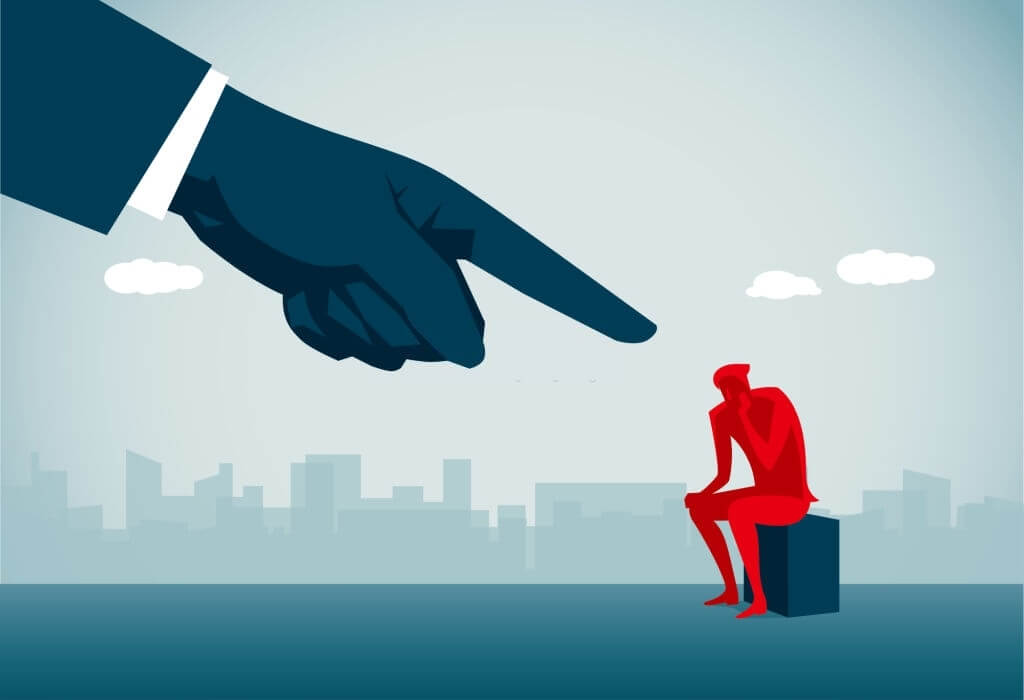According to APA, emotional immaturity “a tendency to express emotions without restraint or disproportionately to the situation.”
Everyone grows up; you get taller, you get stronger, your features change and the shape of your body follows. Each year you get chronologically older but your mind has an age of its own; you may be an adult physically but your mind could be several years younger or older. We count physical age by counting each birthday but emotional maturity represents something else.
Something non-linear and very complicated. Throughout your life, you’ll meet people who are wise beyond their years. Their physical age seems far younger than their emotional age, but you’ll also meet people who are very immature; they may look like adults but deep down they’re narrow-minded and selfish, they can’t control their emotions and they think only about themselves.
In today’s article we’re going to learn about six signs of emotional immaturity. So how can you spot an immature person in your life? What red flags tell you when someone is emotionally immature?
6- The escalator

This type of people turn every small problem into a big one. They get angry, annoyed, or sad when the smallest things go wrong. The reason rarely justifies the rage; something tiny and insignificant can launch an immature person into an emotional fury.
They criticize others and they insult the people they love and they adopt an unbreakable victim complex that no amount of arguing can unravel. Some people call this a temper tantrum. In more academic terms we call it emotional escalation but they’re essentially the same thing.
An immature person lets their impulsive emotions get the best of them on a regular basis. Each time those emotions blow small problems out of proportion and create conflict in their personal and social lives.
Just imagine this situation, you’re walking down the street when you accidentally bump into someone else, you apologize but this person overreacts immediately, they start yelling in your face, they call you clumsy and careless. In an instant they lost control of their emotions, they turned a small and simple problem into a larger more aggressive conflict.
Or let’s say you ask your partner to take out the trash. This chore only takes 30 seconds but they refuse to do it. They start whining and pouting. Acting like this chore is the worst thing in the world.
If your friend or partner is immature, you may hear escalations like these all the time, but adults don’t throw temper tantrums, adults keep their feelings under control, they don’t spiral into fits of anger or salt when something goes wrong. If you know someone who does, they may be emotionally immature.
5- Ad hominem

Have you ever argued with an immature person? It can be incredibly frustrating; they rarely focus on the argument at hand, instead they ignore the problem, lose control of their feelings and get overwhelmed, so what happens next? They start insulting your character.
Many immature people don’t know this but this style of arguing actually has a name, it’s called an Ad hominem argument. If you give an ad hominem, you’re choosing to attack the person instead of the problem. These arguments have little basis in logic, fact or reason but that rarely crosses their mind.
If someone is using an ad hominem, they’re more interested in tearing you apart, deep down these people genuinely believe they’re winning the argument but in reality they’re only showing how immature they can be.
Outside of this context ad hominem arguments can be useful if used strategically; these arguments can sway people in one direction or another. In a courtroom for example, a lawyer can make an ad hominem argument to discredit a witness but immature people don’t give ad hominem arguments on purpose, they criticize others out of desperation and frustration, this is called an abusive ad hominem.
The goal is not to make a compelling argument, the goal is to directly attack the other individual. In other words an abusive ad hominem is no different than name-calling.
If you think someone is emotionally immature, pay close attention to the way they argue, do they keep a cool head or do they instantly lose control. If someone starts calling you names, they may be as immature as they sound.
4- Attention hogging

Immature people crave attention, they’re happiest when standing in the spotlight, they want to be praised and recognized by others especially adults but what happens when you ignore an immature person, they get restless, they lash out, they do something to put the spotlight back on themselves and if that doesn’t happen they may lose control of their emotions.
Mature adults grow out of this need for attention, you learn to share the spotlight sometimes, you talk about yourself sometimes, you talk about others and you know that attention comes and goes, but immature people seek attention their entire lives, they can’t stand being out of the spotlight and they get irritated when someone else is the center of the attention.
When they’re being ignored, they pout and sulk, they act out because they feel insecure, sitting on the sidelines. If you’re dealing with an immature adult, they may act like you’re neglecting them but the problem isn’t you, this immature person never learned to share, they’re too self-absorbed to prioritize anyone but themselves, they demand attention 24/7 because they have a lot of growing up to do.
3- Poor impulse control

Every choice you make has consequences; some choices affect the people around you, others affect the direction of your life. Adults consider the consequences before making any decision, no matter how badly they want something they stop to think about what could go wrong.
Immature adults do not think things through; they act purely on impulse, they don’t think about the consequences of their actions. If they want something, they take it right away but their reckless choices impact others on a daily basis.
How can you tell if someone has poor impulse control? Just listen to the way they talk; adults with poor impulse control say rude and careless things, they don’t consider how their words affect others, they say whatever’s on their mind, whether it’s hurtful or not.
Interruptions are another sign of poor impulse control; mature adults wait for other people to finish talking, they take a moment to consider what was said then express their opinions. Immature people refuse to wait their turn, they interrupt others whenever they feel like it because they’re not really listening, they don’t care what the other person is saying, they’re just waiting to speak so they jump in whenever they want.
Just think about conversations you’ve had with friends and partners; do you know someone who says careless things? Do you know someone who interrupts you every chance they get? If the answer is yes, then you’re dealing with an emotionally immature person.
2- Emotional avoidance

Not everyone who’s immature throws tantrums or demands attention, sometimes emotional immaturity shuts people down; let’s say you want to have a tough conversation with a friend, you’re unhappy with a bad habit they’ve picked up, you feel like it’s your responsibility to intervene, so you tell them that you’re worried. How does this person react? instead of talking to you, they brush you off, they give an excuse to avoid the problem, they may say things like: I don’t have time for this right now or I’m too stressed to have this conversation, even worse an immature person may laugh or they may ignore you when you want to have a deeper discussion.
Emotional avoidance is a huge red flag, your friend is avoiding tough conversations because they don’t want to confront their problems, they’d rather run from their feelings or just stuff them down, if they run away from their problems, they don’t have to deal with it, they don’t have to put in the hard work.
The unfortunate truth is they may not be mature enough to change but that doesn’t mean your friend is a lost cause if they refuse to have tough conversations, you need to confront them, they may ignore your concerns and run away from their issues but an honest confrontation can snap them out of it.
Immature people, though, do not grow up overnight, if they keep making excuses, then you’re dealing with an immature person so it may be time to leave that person behind.
1- Zero accountability

When an immature person breaks something, what do they do? They blame someone else. They don’t take responsibility for their actions, and they don’t know how to admit that they’re wrong, and they blame other people because they don’t want to get in trouble and they don’t want to fail.
Adults should be accountable for their mistakes. They should not blame others for their failures, their mistakes are their responsibility and not anyone else’s. If you know someone who’s emotionally immature then you might see this on a regular basis. Immature adults pass the blame whenever they can no matter who they hurt in the process.
Let’s say a presentation fails at work. Instead of blaming themselves, they may target a co-worker. They may claim this co-worker is the reason they failed. Immature adults avoid responsibility in every aspect of their lives; in their career, in their relationships.
Why do immature people refuse to accept blame? Why can’t they admit their mistakes? Because accepting blame means admitting that you’re wrong, you’re saying that you are at fault.
Emotionally immature people do not want to get in trouble, they do not want to take responsibility for their mistakes. In their minds, nothing is ever their fault but you know better.
Read also:
